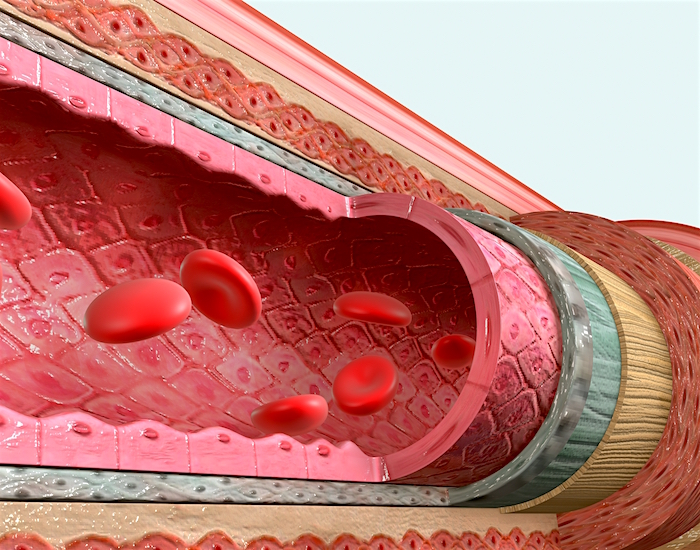 Researchers have discovered the mechanism whereby elevated blood glucose levels (hyperglycemia) damage human blood vessels to trigger the onset of a range of deadly diabetic complications, including inflammation, blood clots and kidney disease.
Researchers have discovered the mechanism whereby elevated blood glucose levels (hyperglycemia) damage human blood vessels to trigger the onset of a range of deadly diabetic complications, including inflammation, blood clots and kidney disease.
By modeling the effects of hyperglycemia on endothelial cells – the cells that form the lining of human blood vessels – the researchers confirmed that glucose metabolism in endothelial cells is increased in the presence of higher than normal concentrations of glucose. They further identified, for the first time, exactly how this leads to more severe diabetic complications.
An enzyme that normally helps to metabolize glucose in endothelial cells – hexokinase-2 (HK2) – tends to break down more slowly in the presence of elevated glucose concentrations. As a result, the endothelial cells begin to metabolize more glucose, instigating further metabolic alterations in endothelial cells.
This metabolic derangement in turn leads to increased production of a reactive glucose-derived substance, methylglyoxal (MG), that is elevated in diabetes and linked to vascular complications, including damage to blood cells, kidneys, retina and nerves in arms and legs.
As MG binds and modifies proteins, it causes them to become misfolded. In the study the researchers found 222 proteins that are susceptible to MG modification. They also identified a protein quality surveillance system, called the Unfolded Protein Response, that normally aids in removing damaged proteins. When the unfolded protein response is overloaded, the build up of misfolded proteins triggers inflammation and blood clot formation. Together these processes contribute to blood vessel damage linked to the development of vascular complications associated with diabetes.
Dr. Naila Rabbani, from Warwick Medical School, said of the study: “Mechanisms of organ sensitivity to damage by high glucose concentrations in diabetes are still poorly understood and urgent improvement in treatment of diabetic complication is needed. Our study provides a step advance in understanding these mechanisms.”
Source: Zehra Irshad, Mingzhan Xue, Amal Ashour, James R. Larkin, Paul J. Thornalley, Naila Rabbani. Activation of the unfolded protein response in high glucose treated endothelial cells is mediated by methylglyoxal. Scientific Reports, 2019; 9 (1) DOI: 10.1038/s41598-019-44358-1











